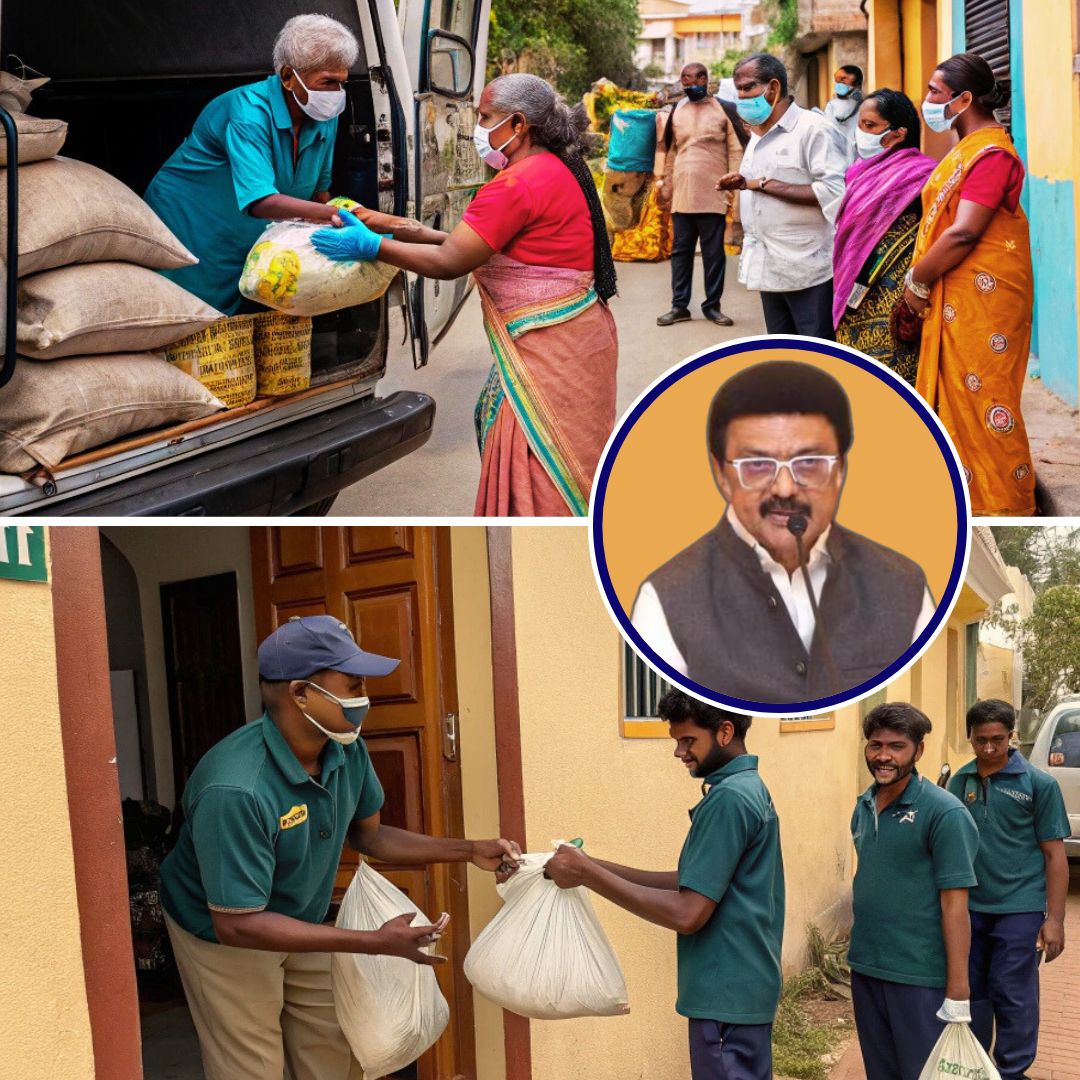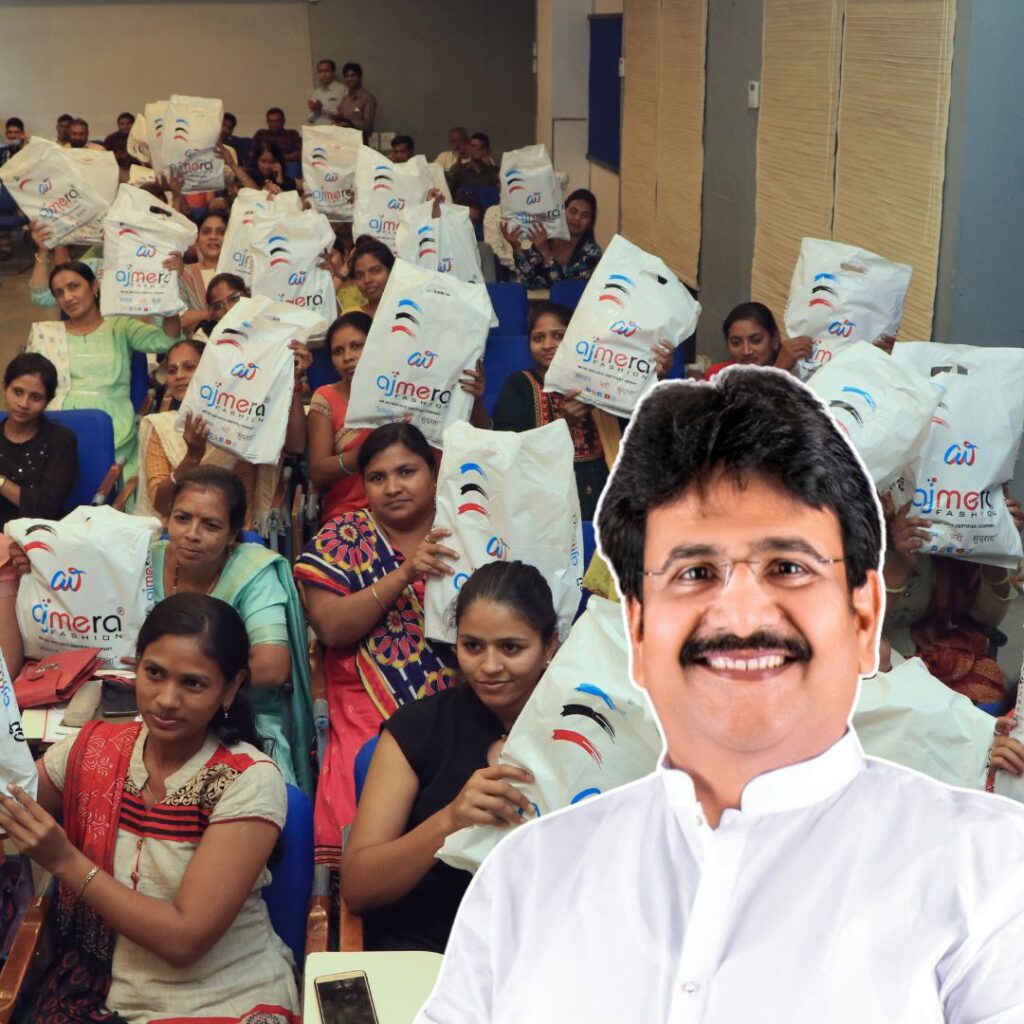The Tamil Nadu government has launched a pioneering doorstep delivery pilot scheme for essential commodities under the Public Distribution System (PDS) in Chennai and nine other districts from July 2025.
This initiative is specifically designed to benefit elderly citizens aged 70 and above, as well as persons with disabilities (PwDs) who do not have family support to collect their monthly rations. The pilot phase, covering approximately 15 lakh ration cardholders both PHH and NPHH operates through 100 selected fair price shops.
With biometric authentication and doorstep verification, the scheme aims to ensure secure, transparent, and dignified delivery. The pilot is expected to be formally inaugurated by Chief Minister M K Stalin and will serve as a model for potential statewide expansion.
Bringing Welfare to the Doorstep: How the Scheme Functions
The new scheme is a collaboration between the cooperation and civil supplies departments, which have mobilised a dedicated fleet of vehicles including maxi trucks, mini trucks, and vans to deliver rice, wheat, sugar, palmolein oil, and toor dal directly to the homes of eligible beneficiaries.
The selection process is stringent: only those who are unable to visit ration shops and who lack able-bodied family members are considered. Local fair price shop records, field verification by officials, and digital tracking are all used to finalise the beneficiary list.
Each delivery is authenticated through biometric verification at the doorstep, using a mobile app to log transactions in real time. This ensures both transparency and accountability, addressing past concerns about misuse or diversion of PDS supplies.
Officials have highlighted the practical impact of the scheme. “For years, many elderly and disabled citizens have struggled to access their rations due to mobility issues or lack of support. This scheme is a direct response to their needs, ensuring they receive their entitlements with dignity,” said a senior civil supplies official.
Beneficiaries like Mrs. Lakshmi, an 82-year-old Chennai resident, expressed relief: “I have not been able to walk to the ration shop for years. This service means I no longer have to depend on neighbours or go without essentials.”
Tackling Challenges: Lessons from Other States and Systemic Improvements
The pilot is being closely watched, especially after Andhra Pradesh’s similar scheme was discontinued due to operational and technical hurdles, including high costs, failed biometric authentication, and delivery irregularities.
Tamil Nadu is leveraging its fully computerised PDS network which boasts a 98.5% success rate in biometric authentication and its extensive logistics infrastructure, with over 35,000 ration shops and nearly 2,500 mobile fair price shops.
The state has also improved warehouse management, aiming to complete bulk deliveries within the first week of each month, reducing storage losses and enhancing efficiency.
To further minimise errors and ensure smooth delivery, the government is conducting training sessions for delivery staff, enhancing the mobile app’s functionality, and setting up a dedicated helpline for beneficiaries to report issues or seek assistance.
Feedback from the pilot will be systematically collected and analysed to refine the process. Officials are also exploring partnerships with local NGOs and community volunteers to help identify eligible beneficiaries and monitor delivery quality.
The Logical Indian’s Perspective
Tamil Nadu’s doorstep ration delivery pilot is a milestone in inclusive governance and social justice. By recognising and addressing the unique challenges faced by the elderly and persons with disabilities, the government is taking a crucial step towards building a welfare system that leaves no one behind.
The emphasis on transparency, technological innovation, and community involvement sets a positive precedent for other states to emulate. However, the scheme’s long-term success will depend on its adaptability, responsiveness to feedback, and ability to scale without compromising quality.
As this pilot unfolds, it challenges us to think more deeply about how we can make public services truly accessible to all. What further innovations or safeguards would you suggest to ensure that every citizen, regardless of age or ability, can access their basic rights with dignity?












